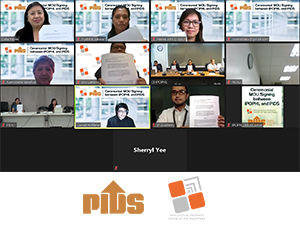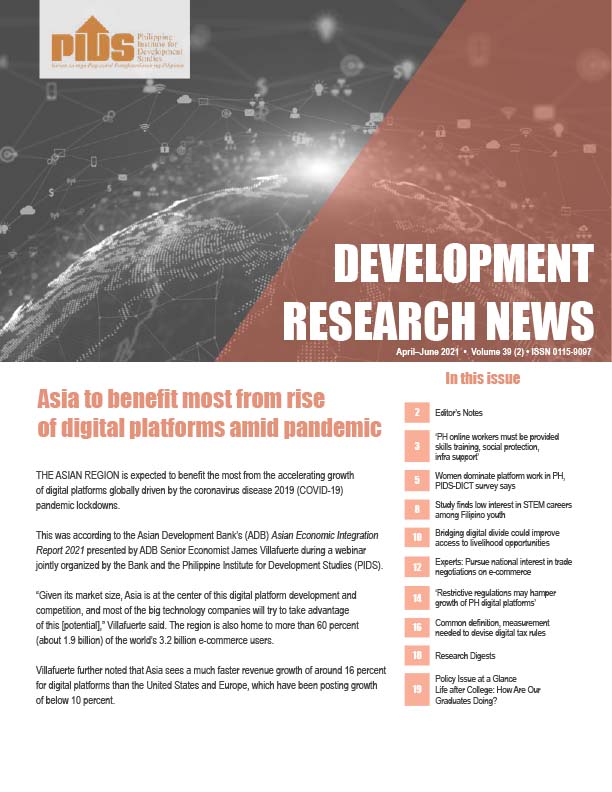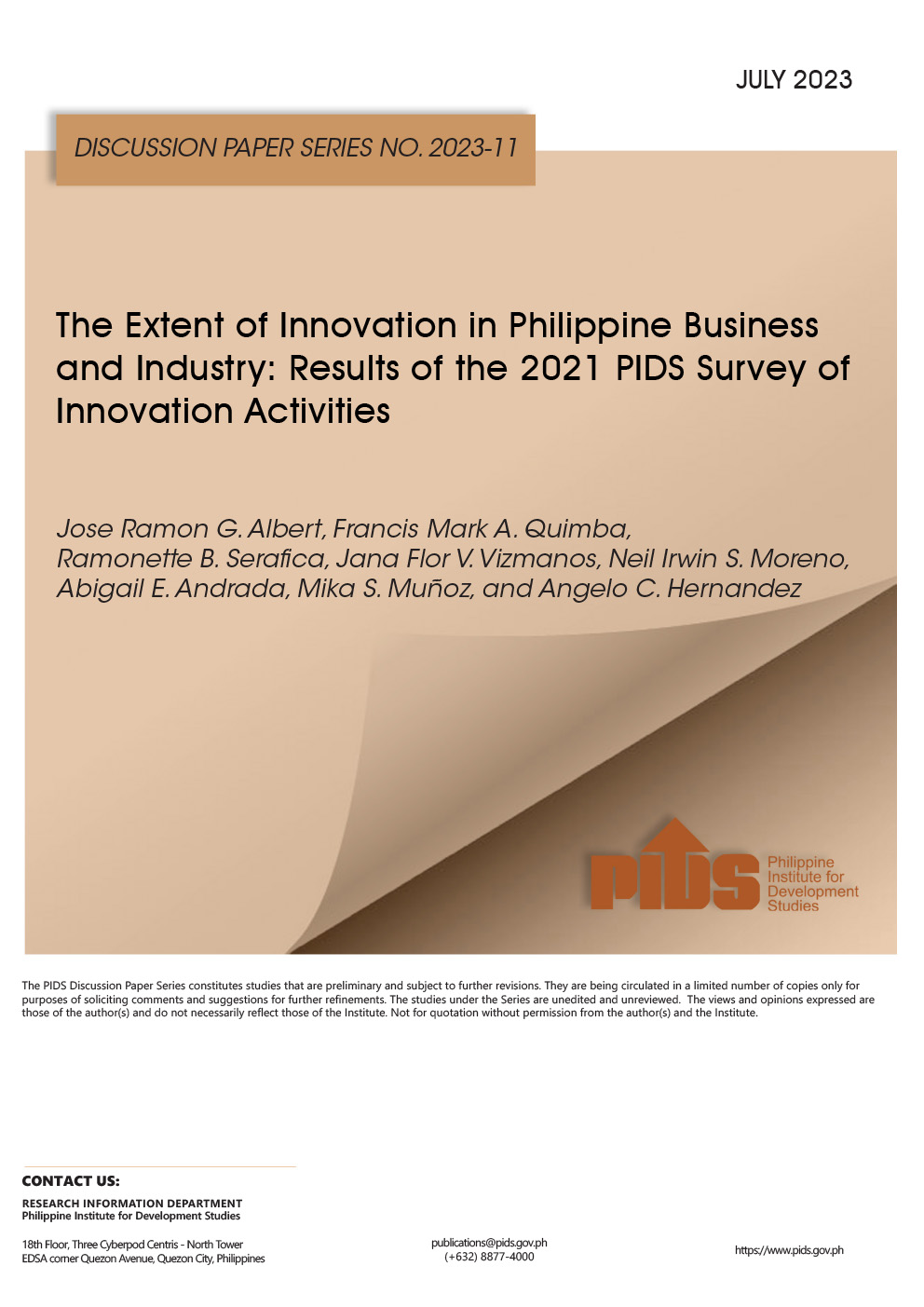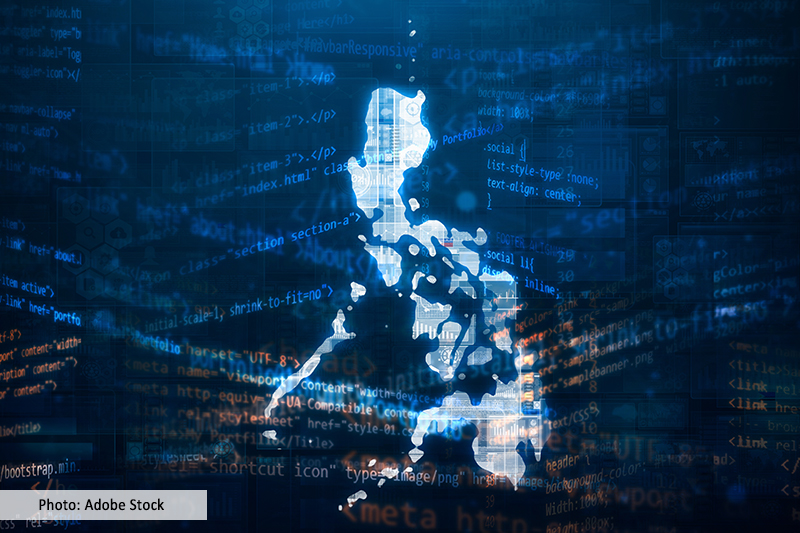
The Philippine Institute for Development Studies (PIDS) entered a memorandum of understanding (MOU) with the Intellectual Property Office of the Philippines (IPOPHL) to explore opportunities for cooperation in the field of intellectual property and innovation, including joint research projects and training, capacity building and analysis, and resource and information sharing.
The MOU signing was led by PIDS President Celia Reyes and IPOPHL Director General Rowel Barba in a virtual ceremony on June 30, 2020.
Under the MOU, IPOPHL allows PIDS access to its data and other documents and information; to participate in the state think tank’s research activities as resource persons and contributors; and to assist the Institute in the conduct and dissemination of its research outputs.
PIDS, on the other hand, agrees to conduct policy research and analysis on certain programs and projects of the IPOPHL as well as provide access to research studies and documents needed by the intellectual office.
This newly formed partnership is an opportunity for both parties to exchange knowledge and expertise on how to improve data protection and management by using the intellectual property system, especially in light of the digital revolution or the Fourth Industrial Revolution.
Also present during the online MOA signing were PIDS Vice President Marife Ballesteros, IPOPHL Deputy Director General Teodoro Pascua, PIDS Senior Research Fellow Jose Ramon Albert, PIDS Research Services Department Manager Renee Ajayi, IPOPHL Assistant Director Frederick Romero, and staff from both agencies.
PIDS serves as the Philippine government’s primary socioeconomic policy think tank. It is a nonstock, nonprofit government corporation engaged in the conduct of evidence-based and policy-oriented researches to assist policymakers in crafting development policies, plans, and programs.
IPOPHL is responsible for administering and implementing “state policies on operating an intellectual property system that fosters innovation and domestic creativity, facilitate transfer of technology, attracts foreign investments, and ensures market access for Philippine products”. It is also responsible for protecting and securing “the exclusive rights of scientists, inventors, creators, artists and other gifted individuals to their intellectual property and creations”. ###
The MOU signing was led by PIDS President Celia Reyes and IPOPHL Director General Rowel Barba in a virtual ceremony on June 30, 2020.
Under the MOU, IPOPHL allows PIDS access to its data and other documents and information; to participate in the state think tank’s research activities as resource persons and contributors; and to assist the Institute in the conduct and dissemination of its research outputs.
PIDS, on the other hand, agrees to conduct policy research and analysis on certain programs and projects of the IPOPHL as well as provide access to research studies and documents needed by the intellectual office.
This newly formed partnership is an opportunity for both parties to exchange knowledge and expertise on how to improve data protection and management by using the intellectual property system, especially in light of the digital revolution or the Fourth Industrial Revolution.
Also present during the online MOA signing were PIDS Vice President Marife Ballesteros, IPOPHL Deputy Director General Teodoro Pascua, PIDS Senior Research Fellow Jose Ramon Albert, PIDS Research Services Department Manager Renee Ajayi, IPOPHL Assistant Director Frederick Romero, and staff from both agencies.
PIDS serves as the Philippine government’s primary socioeconomic policy think tank. It is a nonstock, nonprofit government corporation engaged in the conduct of evidence-based and policy-oriented researches to assist policymakers in crafting development policies, plans, and programs.
IPOPHL is responsible for administering and implementing “state policies on operating an intellectual property system that fosters innovation and domestic creativity, facilitate transfer of technology, attracts foreign investments, and ensures market access for Philippine products”. It is also responsible for protecting and securing “the exclusive rights of scientists, inventors, creators, artists and other gifted individuals to their intellectual property and creations”. ###












